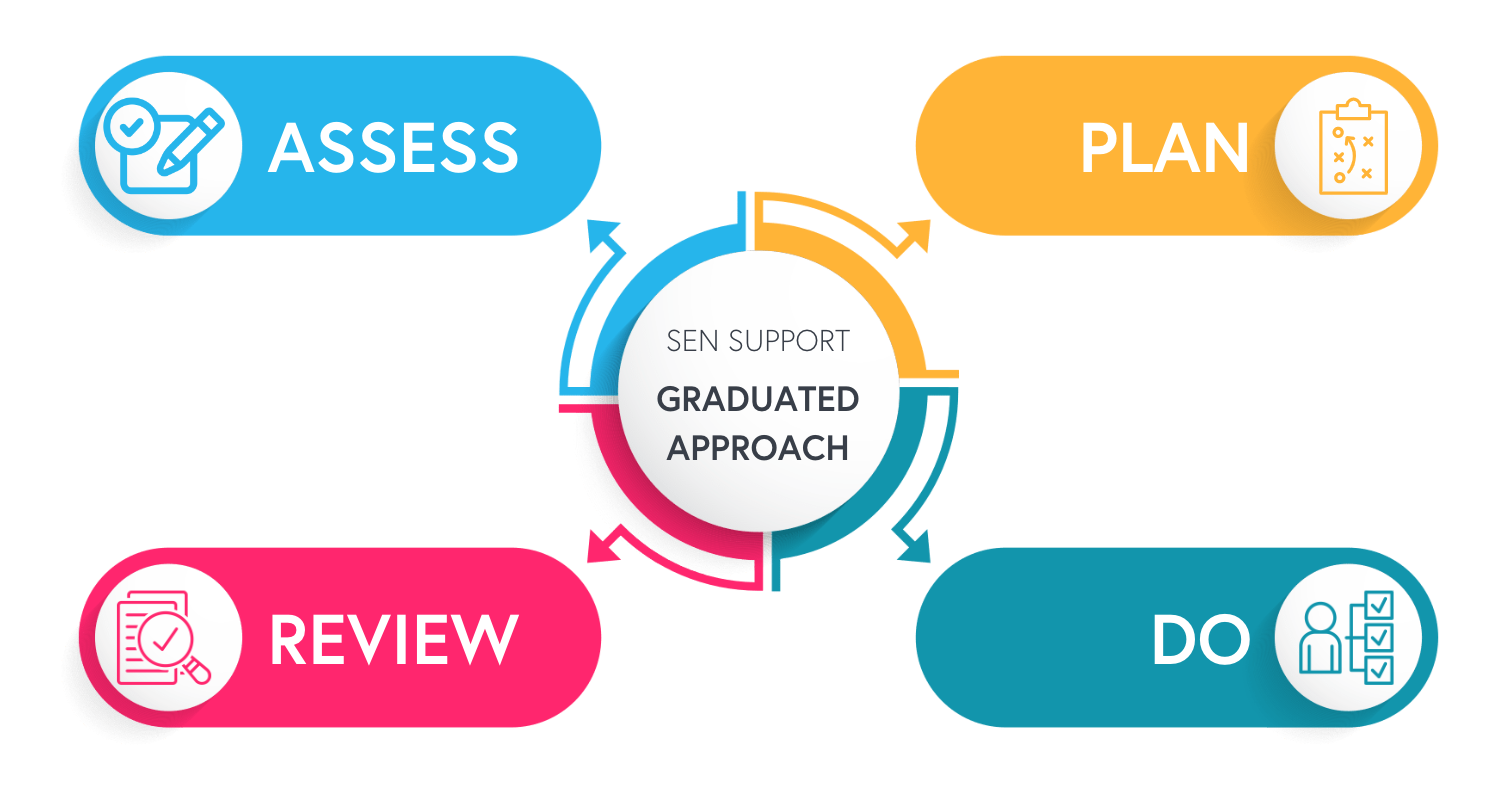Assessing needs
Schools should assess each pupil’s current skills and levels of attainment when they start at the school and then regular further assessments should be done. These assessments should identify pupils making less than expected progress.
The SEND Code of Practice refers to four broad areas of need:
Communication and interaction
Cognition and learning
Social, emotional and mental health
Sensory and/or physical needs
There is more detail given in relation to each area in the Code. A child can have needs falling in more than one area.
The expectation is that schools will plan how to deal with each of these areas of need, and ensure that their staff have relevant training and are equipped to respond.
Special educational provision in schools is called SEN Support.
The graduated approach
The school should use a graduated approach following a cycle called Assess, Plan, Do, Review:

Assess
The class teacher or subject teacher (working with the SENCO) is responsible for carrying out a clear analysis of a pupil’s needs, drawing on teacher assessments and experience of the pupil.
Plan
Where it is decided to provide a pupil with SEN Support, the parents must be notified. All teachers and support staff who work with a pupil should be made aware of their needs, the outcomes sought, the support provided and any teaching strategies that are required.
Do
The planned interventions should then be put into place. The class or subject teacher should work closely with any teaching assistants or specialist staff involved and the SENCO should support the class or subject teacher.
Review
Reviews should take place and inform to see what progress the child is making and what is and is not working. The Code doesn’t say specifically how often reviews should take place, but it does suggest that schools should meet with parents three times a year to report back on the SEN Support being provided and what progress is being made. The decision to involve specialists can be taken at any time and should always involve parents.
Where, despite the school having taken relevant and purposeful action to identify and meet the child or young person’s needs, they are still not making expected progress, the school should consider, requesting an Education, Health and Care (EHC) needs assessment.
Get in touch with us
If you can't find what you need, feel free to get in touch with us. Our opening hours are:
- Monday to Thursday from 9.30am to 3pm
- Friday from 9.30am to 2pm
We aim to respond to all enquiries within 3 working days.
Other sources of help and support:
Hertfordshire Local Offer
The Local Offer lets parents and young people know what special educational needs and disabilities services are available in Hertfordshire, and who can access them.
Visit the Local Offer →
Contact
A charity for families with disabled children offering information and advice.
Visit Contact →
HPCI
An independent parent carer organisation ensuring family voices are heard.
Visit the HPCI →
IPSEA
Independent information, advice and support, with free guides, resources and template letters.
Visit IPSEA →
